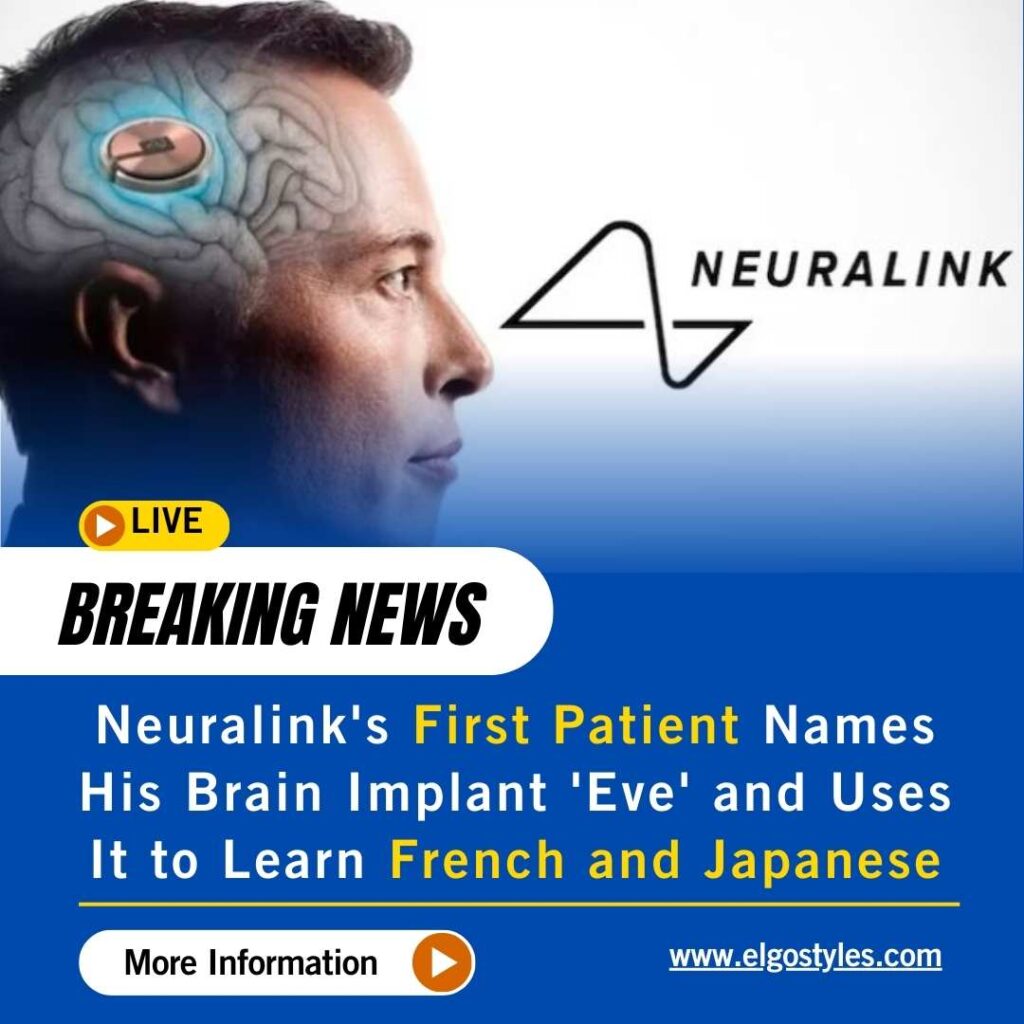Neuralink’s First Patient Names His Brain Implant ‘Eve’ and Uses It to Learn French and Japanese The Future of Mind-Controlled Technology Is Here!”
Neuralink’s first patient, Noland Arbaugh, has taken a significant step forward in the evolving world of brain-implant technology. Seven months after receiving the brain chip, Arbaugh has named the device “Eve” and is using it to enrich his life by learning French and Japanese, among other pursuits.
Arbaugh, who became the first person to receive the implant developed by Elon Musk’s brain-interface company, Neuralink, in January, has been working closely with the device to improve himself in various ways. He spends about four hours a day in sessions with Neuralink staff, testing the implant, and dedicates his free time to studying languages, relearning math, and engaging with the Bible.
The journey hasn’t been without its challenges. Initially, the implant began to malfunction after several of its 64 threads, each thinner than a human hair, retracted from his brain. This setback took an emotional toll on Arbaugh, but Neuralink was able to fix the issue, restoring the implant’s functionality. Now, Arbaugh is thriving, describing his life as having “improved so much in such a short time.”

“My life has improved so much in such a short time—it’s hard to even put into words.” — Noland Arbaugh, Neuralink’s first patient.
Arbaugh’s ambitions go beyond learning languages; he hopes to return to college, potentially studying neuroscience, publish his creative writing, start a charity, and even build a house for his parents. His story highlights both the incredible potential and the complex challenges of brain-implant technology.
Elon Musk, Neuralink’s founder, envisions a future where such implants could be widespread, potentially implanted in thousands or even millions of patients within the next decade. Musk has also hinted at the possibility of using the technology to control prosthetic limbs and sees it as crucial for humanity to keep pace with superintelligent AI.
Arbaugh’s experience with “Eve” not only showcases the advancements in neural technology but also underscores the profound impact these developments can have on individual lives. As he continues to work with the implant, Arbaugh remains optimistic about the future, signing off his updates with “Noland & Eve, a.k.a. P1,” signaling his unique partnership with the device that is reshaping his world.
Read More:
Elon Musk’s Neuralink Hits Milestone with Successful Second Implant Trial for Paralyzed Patients
 Electrical Engineering World Wiring a Brighter Tomorrow!
Electrical Engineering World Wiring a Brighter Tomorrow!



